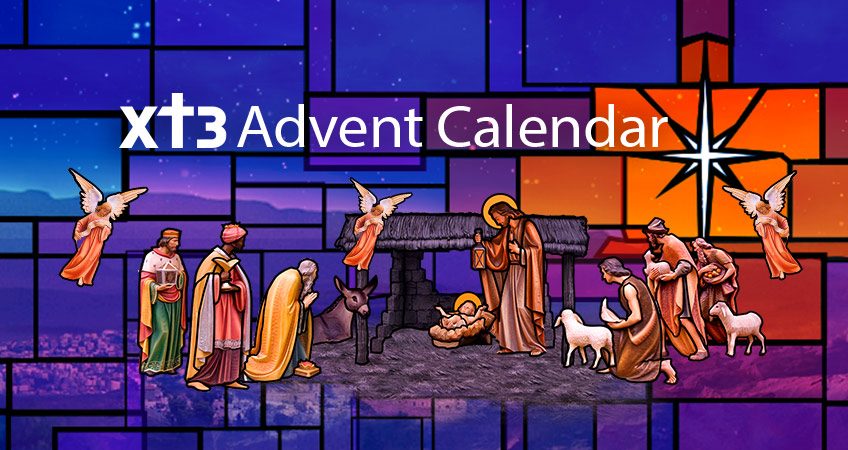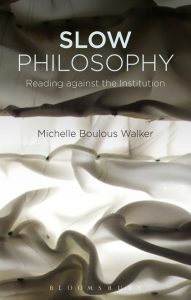The Slow Food Movement

If the audio player above is not working on your browser, download the mp3.
This is an excerpt from the Pre-WYD19 Catechesis by Archbishop Anthony Fisher OP on 7th December 2018.
REFLECT
- Are there any areas in my life where I’m moving ‘too fast’? (Fast food, fast fashion, fast tech?)
- What areas of my life do I need to slow down?
Prefer to read? Read the transcript below:
The Slow Food movement began in the 1980s in response to the opening of a McDonald’s store near the Spanish Steps in Rome. In its 32 years so far, the Slow Food movement has grown into a global organisation and has inspired many parallel movements. Slow Food International claims over 100,000 members across 150 countries, with local groups across Australia.
The antithesis of the fast food movement, at its heart the slow food movement decries our modern obsession with speed and efficiency, the busy-busy-busy of life, which leads us to wolf down mass-produced cheeseburgers as we rush from one task to the next. The proponents of the slow food movement suggest the antidote of eating food that is grown locally and organically, processed as little and small-scale as possible, prepared with love and care, and consumed with attentive appreciation. Here in Australia they promote Ligurian bee honey from Kangaroo Island, native bunya nut from Queensland and bull-boar sausage from Victoria. But whatever the produce, the slow-foodies encourage us to take our time over our meals…
The last three decades have seen the philosophy behind the Slow Food movement applied to other areas of life such as Slow Ageing, Slow Architecture, Slow Cinema, Slow Counselling, Slow Fashion, Slow Gardening, Slow Marketing, Slow Medicine, Slow Media, Slow Parenting, Slow Scholarship, Slow Tech and Slow Living.
It was perhaps inevitable, then, that there would eventually be a ‘Slow Philosophy’ movement. Slow Phil suggests that philosophy is impoverished when it is rushed to meet production deadlines. UQ lecturer Michelle Boulous-Walker argues that good philosophy requires personal engagement, thorough reading, grappling with texts, deliberative dialogue, wrestling with ideas – all of which takes time.[1]

We can see a similar lines of thought in the Christian tradition, fort example in the practice of lectio divina, or ‘divine reading’, whereby people gradually and repeatedly read a piece of Scripture, savouring each word and idea, until ‘the Word of God is so read and meditated that it becomes a prayer’ (CCC 1107).
Meditation is often associated with the great Eastern religions and the word can evoke images of yogis sitting in the Lotus position, chanting ‘OM’, and seeking to empty their minds of all thoughts. But Christianity has its own long tradition of meditation as a practice that “engages thought, imagination, emotion, and desire” (CCC 2708). It is fed not just by a gradual reading of Holy Scripture but also by vocal prayer such as the Rosary, chants or the Sacred Liturgy that wash over us like waves of the sea, or by quiet private prayer and reflection upon Christian experience. Such an immersive experience that engages the whole person necessarily takes time. But such time wasting is necessary, according to the Catechism of the Catholic Church, “in order to deepen our conviction of faith, prompt the conversion of our heart, and strengthen our will to follow Christ” (CCC 2708). Perhaps it is unsurprising then that we have seen, in recent years, a ‘slow church’ or ‘slow theology’ movement, including such big names as the American Protestant theologian Stanley Hauerwas.[2]
If the Slow movement is right, catching a quickie 30-minute Sunday Mass might suit our schedule but cost us in terms of depth of experience. The sound-bite homily might be a relief and even a brief inspiration, but it won’t feed the soul for long. Racing through our prayers might not be the best way to connect with oneself or with God.
Against the go-go-go culture, with its constant focus on production, efficiency, busyness, Catholicism emerges as a positively ‘medieval’, indeed ‘ancient’. It’s on Pacific Time even when it’s not in the Islands. It just can’t be reduced to 140-characters, a meme or even a Ted talk. Not because you can’t say deep things short, but because you can’t truly hear them, see them, receive them short. Matters of the heart and mind take their own good time.
[1] Cf. Michelle Boulous-Walker, Slow Philosophy: Reading Against the Institution, (Bloomsbury Academic, 2016)
[2] Cf. Plenary Session 2 “Stan and Kyle Talk Slow Church” http://www.ekklesiaproject.org/the-gathering/2012-slow-church-and-fast-friends/schedule-gathering-2012/plenary-session-2/
This feature is a part of the 2018 Advent Calendar, which is available to download for free as an app.
Download on iPhone: http://bit.do/adventiphone
Download on iPad: http://bit.do/adventipad
Download on an Android phone: http://bit.do/adventandroid
Download on an Android tablet: http://bit.do/adventandroidHD

